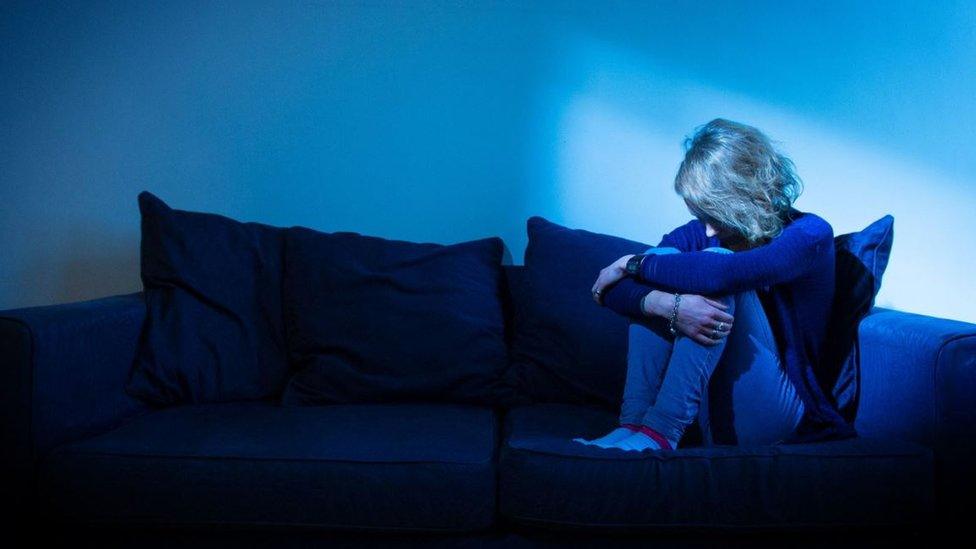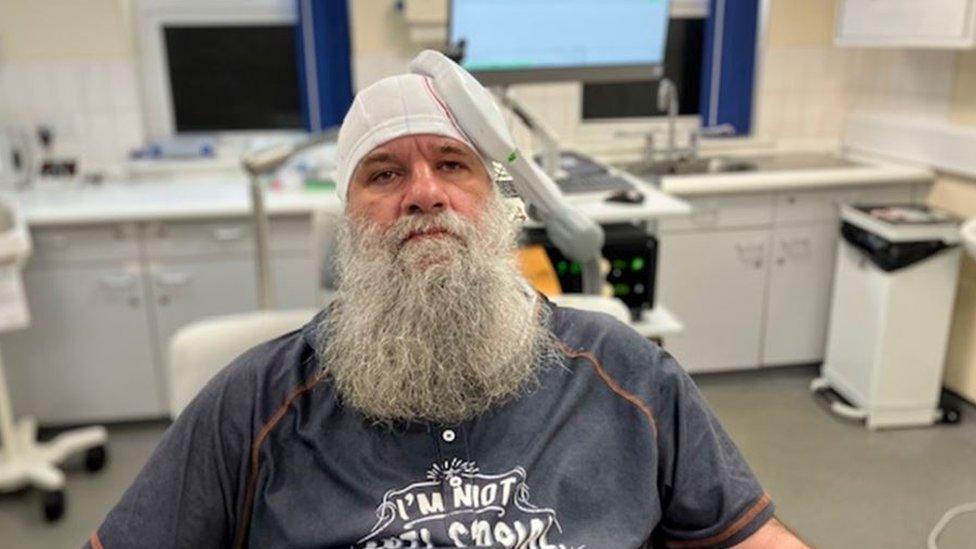New depression therapy shows 'potential' - study
- Published

Researchers have been looking at a new type of therapy for treating depression
A new type of therapy for treating depression has shown signs of being effective during trials conducted in Devon, researchers say.
Researchers from the University of Exeter (UoE) said the "talking therapy" could be a "significant advance" on current treatments.
They said the new treatment increased the emphasis on building wellbeing.
Results from a trial of 82 adults showed the treatment led to "greater gains in quality of life".
For the study, researchers compared the new talk therapy known as Augmented Depression Therapy (ADepT) against the current best practice of Cognitive Behavioural Therapy (CBT).
Researchers said ADepT specifically targeted a core feature of depression known as anhedonia, or reduced interest or pleasure and other wellbeing deficits.
'New perspective'
Prof Barney Dunn, from UoE, said only about 60% of people recovered from their depression while using current treatments such as CBT.
"In ADepT, we encourage clients to take a new perspective to their difficulties, aiming to learn to live well alongside depressed mood," he said.
"The primary goal is to help clients identify what is important to them in key life areas, take steps towards living a life in a way that is consistent with these values, and to take opportunities and manage challenges while they do so that they can experience wellbeing and pleasure."
Researchers said participants in the trial, who were mainly recruited from NHS waiting lists in Devon, received either ADepT and CBT therapy and were assessed at regular intervals.
They found ADepT "showed potential to be better than" CBT at building wellbeing and reducing depression at the end of treatment and over the longer term.
Results also suggested ADepT costed roughly the same amount as CBT to deliver but led to "greater gains in quality of life".

Follow BBC News South West on Twitter, external, Facebook, external and Instagram, external. Send your story ideas to spotlight@bbc.co.uk, external.
Related topics
- Published18 May 2023

- Published16 May 2023

- Published28 March 2023
